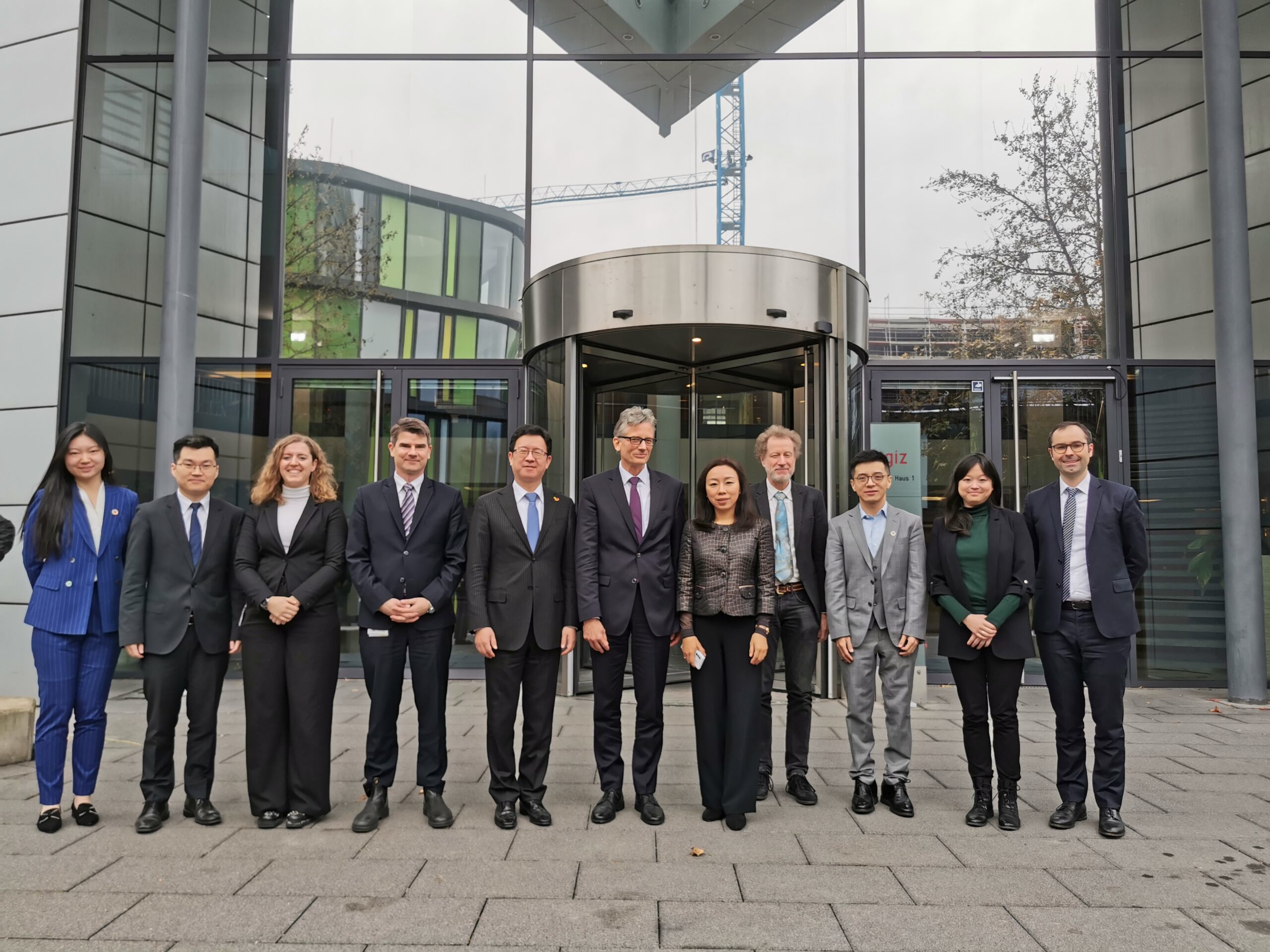To reach the goals of the Paris Agreement, countries all over the world need to reduce greenhouse emissions. Currently, mining sector is among the largest emitters with a reduction potential along the supply chain by, for example, using renewable energy in mining and processing. On July 13th, 2022, a virtual event took place to discuss approaches and best practices to achieve a reduction in carbon emissions in the sector.
The event formed part of a series conducted by GIZ’s Sector Programme Extractives and Development in cooperation with the Sino-German Center for Sustainable Development (CSD), the China Chamber of Commerce of Metals, Minerals & Chemicals Importers & Exporters (CCCMC), supported by the Responsible Cobalt Initiative (RCI). The series establish a platform for dialogue and mutual understanding between stakeholders in Europe, China and mining countries to achieve more responsible mineral supply chains, highlighted Mr. Liu Zhonghui, Vice Presidentof CCCMC, in his welcoming speech.
Mr. Perrine Toledano, Head of Mining and Energy at the Columbia Center on Sustainable Investment, shed light on how to effectively reduce emissions on mine sites. Emission hotspots at mine sites occur during hauling and crushing processes. To minimize emissions, she proposed to increase energy efficiency, electrify operational processes and make more use of renewable energy to replace fossil energy.
Mr. Sun Lihui, Director of the Development Department at CCCMC, illustrated the mutual impact of climate change and the mining industry. He emphasized that managing the risks of climate change is crucial not only for business development, but also for the protection of environmental rights, which were explicitly mentioned in the China’s National Human Rights Action Plan released in September 2021.
WANG Shixing, Technical Expert of Carbon Peaking & Neutrality at Aluminum Corporation of China (Chinalco), reported on the measures the Group has taken at the management level. As one of the leading enterprises in aluminum industry, Chinalco took concrete efforts to reduce its carbon emission and set the goal to reach their carbon emission peak in 2025 and achieve a 40 % reduction by 2035. Both technical plans and action plans for the carbon emission peak and neutralisation were announced in 2021 to ensure the ambitious goals are materialized.
Amongst various actions that can be taken to reduce carbon emissions in the non-ferrous metals industry, it is critical to cap the overall capacity and to increase the percentage of renewable energy application, said WANG Huaiguo, Deputy Director of Science and Technology Department of China Nonferrous Metals Industry Association (CNIA). Apart from technology innovations, there is more to be done, such as developing industrial implementation plans and road maps to achieve carbon peaking and neutrality, and promoting dialogue and cooperation between China and other countries to share best practices.
The input of Dr. Peter Schniering, Future Cleantech Architects gGmbH (FCArchitects), concentrated on the options of renewables to decarbonize critical steps of the value chain in extractive industries. He referred to three things–(1) renewable generation and storage onsite (2) electrify hauling trucks and (3) decarbonize shipping. He also raised the question for alternative minerals for products to reduce emissions and to rethink recycling more.
Johannes Lohmeyer, advisor at GIZ, referred to the special risk resource-rich developing countries are facing in the course of climate change. On behalf of the Ministry for Economic Cooperation and Development (BMZ), the GIZ Sector Programme Extractives and Development engages in projects on carbon emissions reduction in mining, for example, through the support of World Bank’s Climate Smart Mining approach to minimize the environmental and climate footprint of mining. Furthermore, GIZ conducted a study the Renewable Power of the Mine that covers approaches and best practices from renewable energy application in mining globally (please find here the summary in Chinese).
During her closing remarks, Du Shitao from the Sino-German Center for Sustainable Development highlighted the relevance of the event for all stakeholders and encouraged to continue the discussion further.
The importance of reducing emissions along the mineral supply chain became clearer from various international perspectives throughout the session. An international audience from various stakeholder groups reflect the high interest in the topic.




